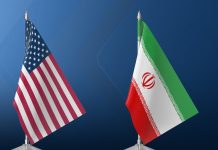Afghan tech entrepreneur Sara Wahedi tore up her staffing roster. Nowadays, her app company’s few remaining employees in Afghanistan work when they can – in the intervals between power cuts and internet outages.
Five months since the Taliban seized power, Afghan companies like Wahedi’s are battling to stay afloat as international sanctions and curbs against the militia group fuel a deepening economic crisis.
“We are running on fumes at this point,” Wahedi, 26, said by email from New York City, where she is remotely running Ehtesab, the mobile app she founded that provides real-time security, traffic and power outage alerts in Kabul, the Afghan capital.
Wahedi had a group of security experts, journalists, government officials and volunteers to vet and verify reports, allowing Ehtesab to send alerts within minutes. Since most of them have left Afghanistan, it takes as long as 15 minutes now.
Unless international investment and funding resume, she said fledgling Afghan companies would be “crippled.”
“It is understandable that Afghanistan is a volatile environment, but without any market, entrepreneurs, especially social entrepreneurs like myself, are left flailing on their own,” Wahedi said.
The Taliban’s lightning takeover saw billions of dollars in Afghan assets frozen overseas. International funding, which had supported 75% of government spending, also dried up overnight.
Banks ran short of cash, millions lost work or went unpaid, the local currency nosedived, while prices rocketed, plunging millions of Afghans into poverty as businesses shut and wages went unpaid. The onset of winter has worsened the conditions.
United Nations Secretary-General Antonio Guterres appealed earlier this month for a suspension of rules preventing the use of money to save lives and the economy, and for a way to release frozen Afghan foreign currency reserves to “avoid a meltdown.”
Without more money circulating, the few companies that are limping on will also be forced to give up, said Matiullah Rahmaty, who has watched his once-bustling Kabul-based business consulting firm BrightPoint grind to a halt since August.
“For businesses, liquidity in cash is like blood in the veins,” Rahmaty, 26, told the Thomson Reuters Foundation from a refugee camp in Abu Dhabi, his home since October. -Agencies




